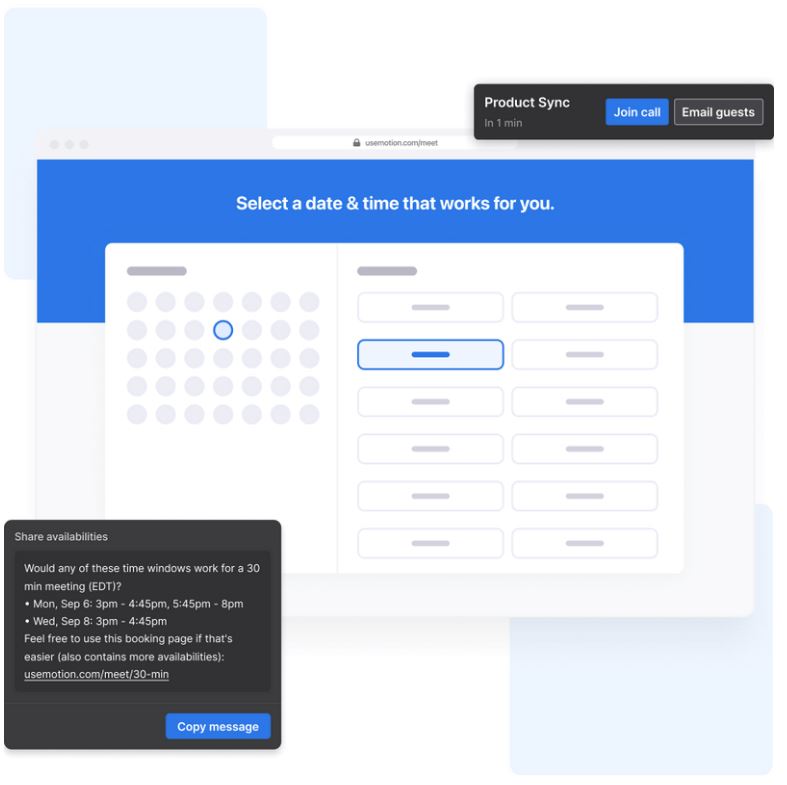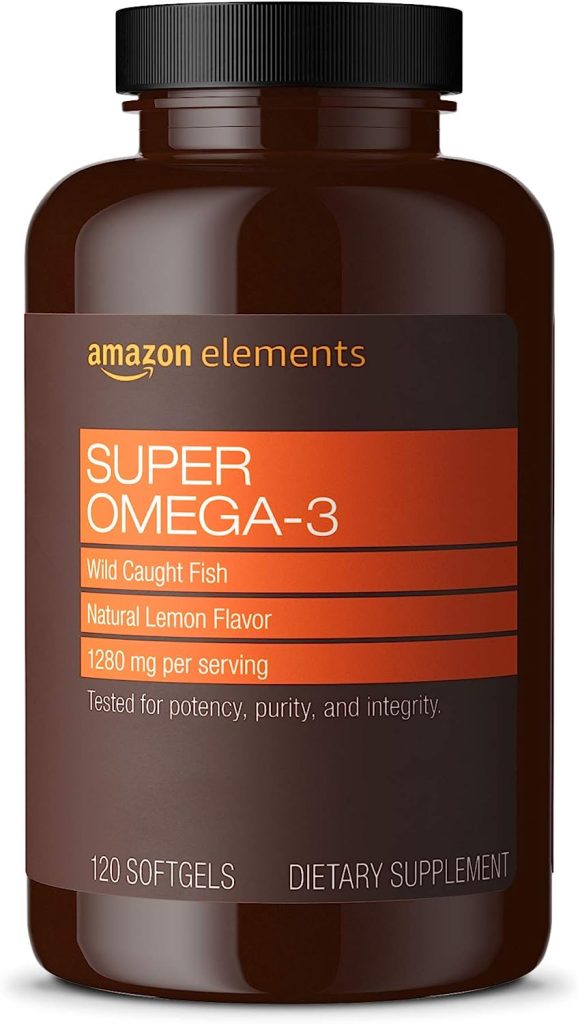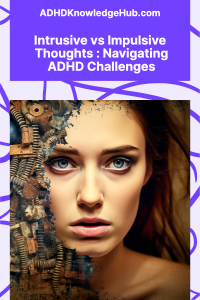Intrusive vs Impulsive Thoughts : Navigating ADHD Challenges
Living with ADHD can be a roller coaster of thoughts and emotions. Intrusive vs. Impulsive Thoughts: Navigating ADHD Challenges delves into the intricate world of attention deficit hyperactivity disorder, offering insights, strategies, and non-stimulant solutions for effectively managing intrusive and impulsive thoughts. As someone who empathizes with the struggles, I’m here to serve as both a guide and advisor throughout this journey.
Intrusive vs. Impulsive Thoughts: Navigating ADHD Challenges
Introduction
As someone who has traversed the tumultuous landscape of ADHD, I understand firsthand the intricate dance of intrusive vs impulsive thoughts and emotions that it entails. This article is my effort to offer guidance to those grappling with ADHD, particularly the persistent challenges posed by intrusive and impulsive thoughts.
Understanding ADHD
ADHD isn’t just a collection of symptoms; it’s a distinctive neural wiring that shapes how we perceive the world. It manifests in three primary variants: predominantly inattentive, predominantly hyperactive-impulsive, and combined presentation. These variations impact attention, hyperactivity, and impulsivity in unique ways.
Intrusive Thoughts: The Persistent Mental Intruders
Intrusive thoughts, those unwelcome visitors to the realm of our thoughts, are a frequent companion for individuals with ADHD. Imagine these thoughts as uninvited guests who show up at your door unexpectedly, disrupting your mental peace. The synergy between ADHD and intrusive thoughts often intensifies their frequency and impact, making them difficult to ignore.
Impulsive Thoughts: Navigating the Tempest of Urges
Impulsivity, the impulsive urge to act, can be likened to a sudden gust of wind that sweeps away rational thought. It can manifest as impulsive speech, quick decisions, or even risky behaviors. The connection between ADHD and impulsivity makes exercising restraint a formidable challenge.
Strategies for Managing Intrusive Thoughts
In the labyrinth of ADHD, managing intrusive thoughts can feel like navigating through a dense forest of distractions. These thoughts, often uninvited and disruptive, can be remarkably persistent, making concentration a formidable challenge. To regain a sense of control, adopting targeted strategies becomes paramount. Mindfulness meditation emerges as a potent tool, allowing individuals to anchor their attention to the present moment. By acknowledging intrusive thoughts without judgment and gently steering focus back to the present, mindfulness cultivates a mental environment where these thoughts lose their grip. Moreover, journaling provides a safe haven for introspection. By putting these intrusive thoughts on paper, individuals can untangle the complex web of emotions, gaining insights into triggers and patterns. This practice not only fosters self-awareness but also offers a practical method to confront and conquer these thoughts.
Strategies for Managing Impulsive Thoughts:
Navigating the turbulent waters of impulsive thoughts in the realm of ADHD requires a toolkit of effective strategies. The impulsive urges that often accompany ADHD can lead to actions that are swiftly regretted. To counter this, adopting strategies aimed at enhancing cognitive control becomes essential. Cognitive Behavioral Therapy (CBT) stands out as a guiding light, offering techniques to restructure thought patterns and redirect impulsive tendencies. Through CBT, individuals can identify triggers, challenge irrational thoughts, and replace them with more balanced perspectives. Additionally, incorporating time management tools proves invaluable. By breaking tasks into smaller, manageable chunks and setting realistic deadlines, impulsive urges to rush or procrastinate can be effectively curbed. These strategies collectively empower individuals to exert conscious influence over impulsive thoughts and actions, fostering a greater sense of self-regulation.

Motion – There are now 13 months in a year.
Motion increases productivity by 137%
With automation and AI that intelligently plan your day, schedule meetings,
And build the perfect to-do list.

Exploring Non-Stimulant Solutions for ADHD Management
The journey to manage ADHD doesn’t solely revolve around stimulant medications. Natural supplements have emerged as viable options. Omega-3 fatty acids, known for supporting cognitive function, and zinc supplements, potentially enhancing focus and attention, provide relief without the side effects of stimulants against Intrusive vs Impulsive Thoughts.

Omega-3 Natural Softgels are dietary supplements that contain fish oil from wild-caught Alaska Pollock. They provide 1000 mg of omega-3 fatty acids per serving, which support heart, brain and eye health. The softgels are gluten-free, non-GMO and tested for purity and potency. They also have a natural lemon flavor to reduce fishy aftertaste. Amazon Elements Omega-3 Natural Softgels are made in the USA and come with a certificate of analysis that shows the origin and quality of the ingredients. The product has a 4.6 out of 5 stars rating from over 13,000 customer reviews on Amazon.com.
Neurofeedback Training offers an innovative approach to rewiring neural pathways. Through monitoring brainwave activity, individuals can gain control over their cognitive processes. This therapy can be particularly effective in addressing impulsive behaviors and enhancing cognitive regulation.
Lifestyle Adjustments for Enhanced Focus
Structured routines are essential for managing ADHD. Creating a consistent daily schedule provides a stable framework, while regular exercise supports cognitive clarity and emotional regulation. Prioritizing sleep hygiene ensures a well-rested mind that’s better equipped to handle distractions against Intrusive vs Impulsive Thoughts.
Leveraging Tech Tools for ADHD Empowerment
In the digital age, technology can be harnessed to enhance focus. Digital organizational tools act as external memory aids, compensating for ADHD-related forgetfulness. Focus-boosting apps leverage reminders and timers to anchor wandering thoughts and enhance productivity.
Building Support Systems for Effective ADHD Management
Navigating ADHD challenges is often smoother with a strong support network. Friends and family can offer understanding and encouragement while participating in ADHD-specific support groups providing an avenue for sharing experiences, strategies, and insights.
Conclusion
Intrusive vs. Impulsive Thoughts: Your journey with ADHD is inherently unique, shaped by personal triumphs and challenges. Embrace the intricacies of your mind, armed with strategies to conquer thoughts which may be intrusive vs impulsive. By integrating personalized approaches, non-stimulant solutions, lifestyle adjustments, and a network of supportive connections, you’re equipped to traverse this path with newfound empowerment.
FAQs about Intrusive vs Impulsive Thoughts and ADHD Management
- Q: Can adults be diagnosed with ADHD?
A: Yes, adults can receive an ADHD diagnosis if they exhibit persistent symptoms that impact daily life. - Q: Are natural supplements safe for ADHD management?
A: Natural supplements can be beneficial, but it’s wise to consult a healthcare professional before introducing new supplements. - Q: How long does neurofeedback training take to yield results?
A: Neurofeedback training’s efficacy varies, but improvements often become noticeable after several sessions. - Q: Can exercise genuinely help with ADHD symptoms?
A: Absolutely, regular exercise has been shown to improve focus, attention, and overall cognitive function in individuals with ADHD. - Q: Is ADHD management a one-size-fits-all approach?
A: No, ADHD management is highly personalized. What works best can differ greatly from person to person, necessitating a tailored approach.

*We may earn a commission for purchases made using our links. Please see our disclosure to learn more.




